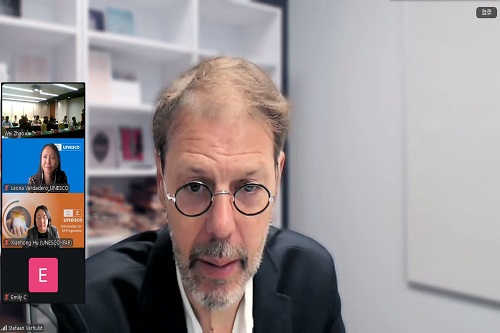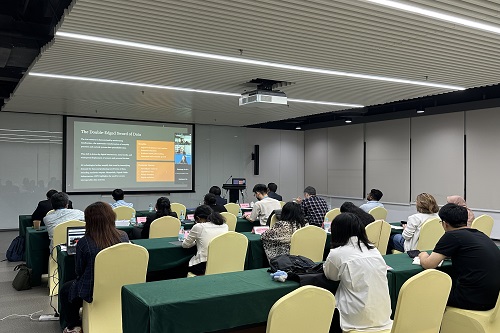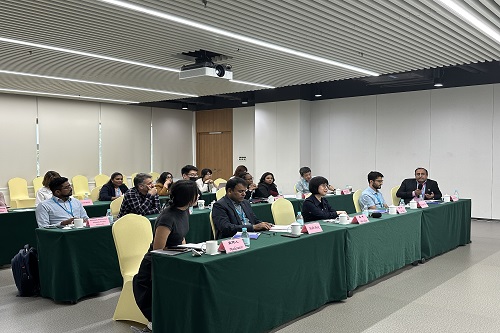Lecture on UNESCO Data Governance Framework and ToolKit, By Prof. Steefaan Vehulst (New York University), Prof. Xianhong Hu (UNESCO-OFAP), and Ms. Leoana Vedadero (UNESCO) on 16 Sep. 2025 at XiongAn China
I recently participated in a 2-Weeks training at XiongAn, China. Following are some details on the lecture titiled 'UNESCO Data Governance Framework and ToolKit', delivered By Prof. Steefaan Vehulst (New York University), Prof. Xianhong Hu (UNESCO-OFAP), and Ms. Leoana Vedadero (UNESCO)



An online lecture was held which highlighted the UNESCO's perspective on data governance particularly AI-based Data Governance. It emphasized on the risks of misuse and stresses the need for clear frameworks to manage data throughout its lifecycle. Central to this is the "4Ps of Data Governance" - Why, How, What, and Who-which outline the purpose, methods, scope, and actors involved in governing AI-ready data. Effective governance requires adherence to processing principles, ensuring high-quality, reusable, and trustworthy data. It also emphasized the importance of data utilization, sharing mechanisms, addressing capacity gaps, and building public trust as critical foundations for sustainable AI development.
The governance model stresses the role of people and processes, including development coordination, oversight, compliance, adjudication, and multi-stakeholder dialogue. Key challenges involve determining what data is fed back into AI systems, how it is shared, and with whom. To address these, frameworks such as data sharing agreements, trust alliances, and standards promoted by organizations like the World Economic Forum (WEF) are seen as essential. Overall, UNESCO advocates a governance approach that balances innovation with responsibility, ensuring that AI systems are trained and deployed on high-quality, ethically managed, and openly trusted data.
Context:A two weeks training titled "International Training Program on Policies and Applications of Government Data Governance in Belt and Road (B&D) Countries" (14-28 September, 2025) was held at XiongAn New Area, China. The training was hosted by the Department of International Cooperation of the Ministry of Science and Technology, organized by Institute of Scientific and Technical Information of China (ISTIC) and co-organized by UNESCO-IFAP China National Committee, UNESCO IFAP Information for Development Working Group (IDWG) and XiongAn Group Digital City Company.
The training included 14 participants from eight countries-China, Pakistan, Sri Lanka, Brazil, Kazakhstan, Zambia, Iran, and Indonesia-representing a wide range of expertise, including public administration, computer science, international relations, environmental science, data governance, industrial management, information science, and international communication.



